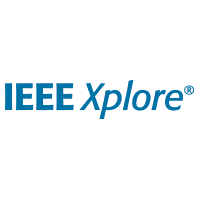ieeexplore.ieee.org/document/7836160
Preview meta tags from the ieeexplore.ieee.org website.
Linked Hostnames
2Thumbnail

Search Engine Appearance
Computer Science Principles (CSP) and students with learning differences: Expanding opportunities for a hidden underrepresented group
The computer science (CS) education field is engaging in unprecedented efforts to expand opportunities in K-12 CS education, and to broaden participation of students traditionally underrepresented in CS. However, even as the field considers ways to provide access to high school computing in general, and the new AP CSP course in particular, one underrepresented group is often overlooked: students with learning differences (that is, students with specific learning disabilities and related attention deficit disorders, like ADHD). The national dialogue about broadening participation in K-12 computing education has given almost no voice to this population. As computer science education initiatives grow, K-12 teachers need evidence-based guidance about how to account for challenges specific to learning disabilities and attention deficit disorders so that these students who learn differently can access instruction and curriculum in ways that address their learning needs. This paper reports on the first phase of a National Science Foundation (NSF) supported exploratory research study (Grant #1542963) to address this problem. We describe our education research-practice partnership that aims to make CS more accessible for students who learn differently and in doing so, highlight the team's process of collaboration as a critical element to address the problem and support equitable learning in CS.
Bing
Computer Science Principles (CSP) and students with learning differences: Expanding opportunities for a hidden underrepresented group
The computer science (CS) education field is engaging in unprecedented efforts to expand opportunities in K-12 CS education, and to broaden participation of students traditionally underrepresented in CS. However, even as the field considers ways to provide access to high school computing in general, and the new AP CSP course in particular, one underrepresented group is often overlooked: students with learning differences (that is, students with specific learning disabilities and related attention deficit disorders, like ADHD). The national dialogue about broadening participation in K-12 computing education has given almost no voice to this population. As computer science education initiatives grow, K-12 teachers need evidence-based guidance about how to account for challenges specific to learning disabilities and attention deficit disorders so that these students who learn differently can access instruction and curriculum in ways that address their learning needs. This paper reports on the first phase of a National Science Foundation (NSF) supported exploratory research study (Grant #1542963) to address this problem. We describe our education research-practice partnership that aims to make CS more accessible for students who learn differently and in doing so, highlight the team's process of collaboration as a critical element to address the problem and support equitable learning in CS.
DuckDuckGo
Computer Science Principles (CSP) and students with learning differences: Expanding opportunities for a hidden underrepresented group
The computer science (CS) education field is engaging in unprecedented efforts to expand opportunities in K-12 CS education, and to broaden participation of students traditionally underrepresented in CS. However, even as the field considers ways to provide access to high school computing in general, and the new AP CSP course in particular, one underrepresented group is often overlooked: students with learning differences (that is, students with specific learning disabilities and related attention deficit disorders, like ADHD). The national dialogue about broadening participation in K-12 computing education has given almost no voice to this population. As computer science education initiatives grow, K-12 teachers need evidence-based guidance about how to account for challenges specific to learning disabilities and attention deficit disorders so that these students who learn differently can access instruction and curriculum in ways that address their learning needs. This paper reports on the first phase of a National Science Foundation (NSF) supported exploratory research study (Grant #1542963) to address this problem. We describe our education research-practice partnership that aims to make CS more accessible for students who learn differently and in doing so, highlight the team's process of collaboration as a critical element to address the problem and support equitable learning in CS.
General Meta Tags
12- titleComputer Science Principles (CSP) and students with learning differences: Expanding opportunities for a hidden underrepresented group | IEEE Conference Publication | IEEE Xplore
- google-site-verificationqibYCgIKpiVF_VVjPYutgStwKn-0-KBB6Gw4Fc57FZg
- DescriptionThe computer science (CS) education field is engaging in unprecedented efforts to expand opportunities in K-12 CS education, and to broaden participation of stu
- Content-Typetext/html; charset=utf-8
- viewportwidth=device-width, initial-scale=1.0
Open Graph Meta Tags
3- og:imagehttps://ieeexplore.ieee.org/assets/img/ieee_logo_smedia_200X200.png
- og:titleComputer Science Principles (CSP) and students with learning differences: Expanding opportunities for a hidden underrepresented group
- og:descriptionThe computer science (CS) education field is engaging in unprecedented efforts to expand opportunities in K-12 CS education, and to broaden participation of students traditionally underrepresented in CS. However, even as the field considers ways to provide access to high school computing in general, and the new AP CSP course in particular, one underrepresented group is often overlooked: students with learning differences (that is, students with specific learning disabilities and related attention deficit disorders, like ADHD). The national dialogue about broadening participation in K-12 computing education has given almost no voice to this population. As computer science education initiatives grow, K-12 teachers need evidence-based guidance about how to account for challenges specific to learning disabilities and attention deficit disorders so that these students who learn differently can access instruction and curriculum in ways that address their learning needs. This paper reports on the first phase of a National Science Foundation (NSF) supported exploratory research study (Grant #1542963) to address this problem. We describe our education research-practice partnership that aims to make CS more accessible for students who learn differently and in doing so, highlight the team's process of collaboration as a critical element to address the problem and support equitable learning in CS.
Twitter Meta Tags
1- twitter:cardsummary
Link Tags
9- canonicalhttps://ieeexplore.ieee.org/document/7836160
- icon/assets/img/favicon.ico
- stylesheethttps://ieeexplore.ieee.org/assets/css/osano-cookie-consent-xplore.css
- stylesheet/assets/css/simplePassMeter.min.css?cv=20250812_00000
- stylesheet/assets/dist/ng-new/styles.css?cv=20250812_00000
Links
17- http://www.ieee.org/about/help/security_privacy.html
- http://www.ieee.org/web/aboutus/whatis/policies/p9-26.html
- https://ieeexplore.ieee.org/Xplorehelp
- https://ieeexplore.ieee.org/Xplorehelp/overview-of-ieee-xplore/about-ieee-xplore
- https://ieeexplore.ieee.org/Xplorehelp/overview-of-ieee-xplore/accessibility-statement